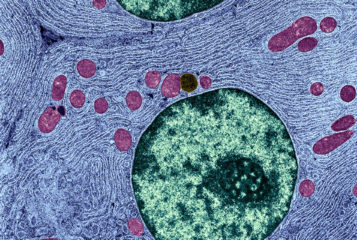A campaign has been launched in Australia to overturn laws preventing couples from accessing mitochondrial donation.
The procedure, legalised in the UK in 2015 (see BioNews 826), involves conceiving a child via IVF with the genetic material of three people – two parents and one mitochondrial donor – to prevent the transmission of maternally-inherited mitochondrial diseases.
The Australian Mitochondrial Disease Foundation (AMDF) say that mitochondrial donation could prevent up to 60 Australian children a year being born with severely disabling and potentially fatal mitochondrial diseases.
The technique is currently illegal in Australia as it contravenes the Research Involving Human Embryos Act 2002 and the Prohibition of Human Cloning for Reproduction Act 2002.
'It is not human cloning by any means, but the procedures that are used overlap with that and it's clear that in Australia it would be illegal to mix the genetic material from three individuals,' said Professor David Thorburn, group leader of mitochondrial research at the Murdoch Children's Research Institute, Victoria.
The committee that last reviewed the legislation in 2011 concluded that mitochondrial donation was not 'sufficiently advanced' to warrant a change. The AMDF, alongside Professor Thornburn and other experts, believes that the science has since moved on.
'This has been rigorously reviewed scientifically and ethically, as well as from a public-perception point of view in the UK. The level of work that's been done in this area justifies a change,' said Sean Murray, chief executive of the AMDF.
The first birth resulting from mitochondrial donation occurred in Mexico last year (see BioNews 871 ). The embryo was initially developed at a fertility clinic in New York, but implantation was carried out in Mexico to avoid US federal regulations (see BioNews 895). Another birth has since been reported in Ukraine, but details of the procedure have not yet been published (see BioNews 885).
There is growing concern that Australian couples may start to go overseas to have the procedure.
'It's a great worry if things are done without any regulatory oversight,' said Professor Thornburn.







Leave a Reply
You must be logged in to post a comment.